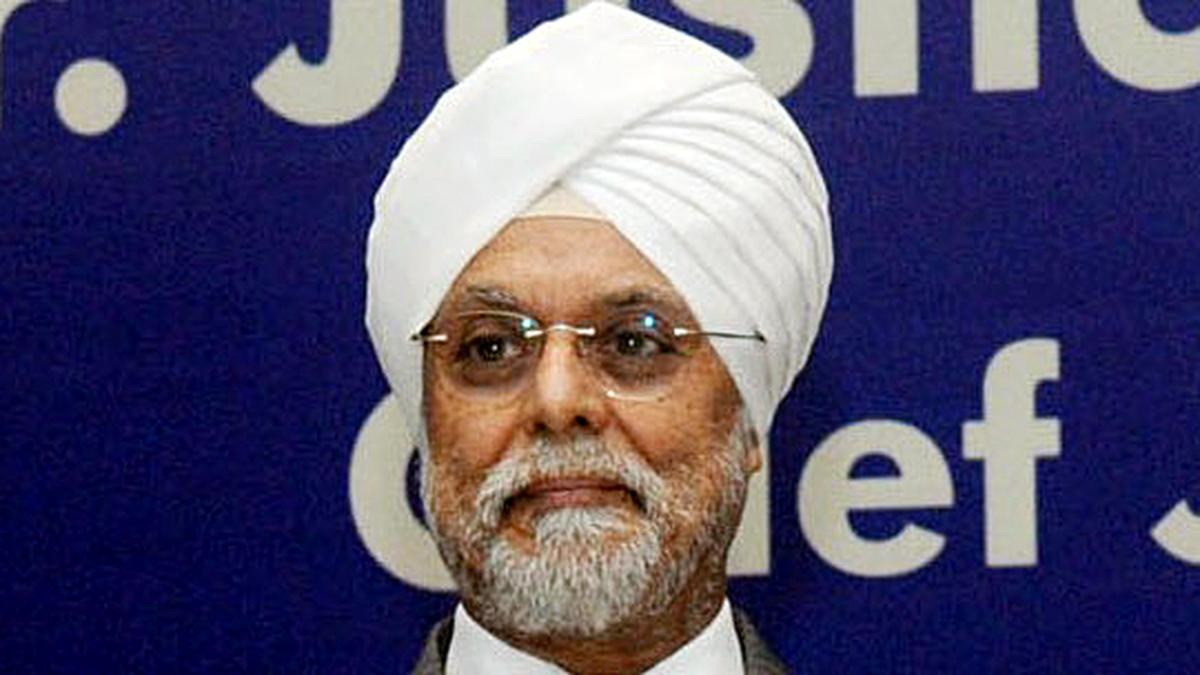
Padma awardee J. Khehar’s decisions often contradicted government views
The Hindu
Padma awardee Justice Jagdish Singh Khehar, first Sikh Chief Justice of India, upheld triple talaq and privacy as fundamental rights.
Padma awardee for ‘public affairs’, Justice Jagdish Singh Khehar, the first Sikh Chief Justice of India, has a judicial legacy that collided with the views of the Union government and once ruled in favour of an embattled Opposition in the first term of the NDA regime.
Heading a multi-faith Constitution Bench in August 2017, the very last month of his tenure as Chief Justice from January 2017, Justice Khehar upheld triple talaq or instant talaq in his minority verdict as a fundamental right. The 44th Chief Justice of India had found the “1400-year-old” practice of Muslim men divorcing their wives by saying ‘talaq’ three times an integral part of the freedom of religion. The Centre had argued that instant talaq was not fundamental to Islam and personal law must abide by the principles of dignity and non-discrimination.
The same month had witnessed a nine-judge Bench headed by Chief Justice Khehar elevate the right to privacy to echelons of the fundamental right, making it a part of the right to life, dignity and integrity under Article 21 of the Constitution. The Union government had found the concept of privacy an elitist concept, at the most a common law right, which must readily give way to public interest.
Justice (as he was then) Khehar, in October 2015, overcame his “awkward predicament” of being a Supreme Court Collegium member and braving demands to recuse himself, declared the National Judicial Appointments Commission (NJAC) Act, giving politicians and civil society a final say in the appointment of judges to the highest courts, unconstitutional. Justice Khehar found it difficult for the judiciary to share its wisdom of appointment of Judges with the political-executive. The judgment had dismissed the Centre’s argument that NJAC was the “will of the people” and cannot be reviewed. However, Justice Khehar had taken an unconventional approach to invite public suggestions to improve the Collegium system, but the reworked draft of the Memorandum of Procedure for Appointment of Judges has not seen the light of the day for over 10 years. The Supreme Court itself had blamed the subsequent delay in judicial appointments to the government’s grouse of having lost the NJAC case.
A unanimous decision of a Constitution Bench headed by Justice Khehar showed the door to the BJP-propped rebel Congress government of Kalikho Pul and paved the way for the return of Congress’s Nabam Tuki government in 2016. The court had quashed the then Arunachal Pradesh Governor J.P. Rajkhowa’s decision to advance the Assembly session which led to President’s rule in the State.
Subsequently, Mr. Pul’s wife linked the Constitution Bench decision with the suicide of her husband. Dangwimsai Pul wrote a two-page note to Justice Khehar, who was Chief Justice by then, seeking a CBI probe into her husband’s suicide note which raised allegations against Supreme Court judges and politicians. Allegations were levelled against two of the judges on the Constitution Bench, including Justice Khehar himself. She later withdrew the note from the Supreme Court after her note was converted into a petition and placed on the judicial side of the court.
A “tough judge”, as Chief Justice TS Thakur once described him, Chief Justice Khehar did not shirk from punishing judges who stepped out of line. In May 2017, he led a seven-judge Bench which took the unprecedented decision to sentence a sitting Madras High Court judge, CS Karnan, to six months’ imprisonment for contempt and for reducing the Indian judiciary into a “laughing stock”.













